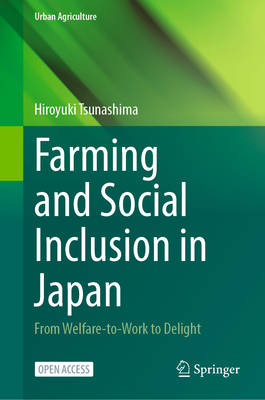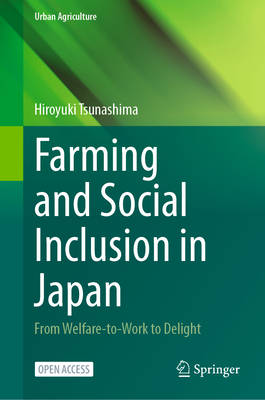
Bedankt voor het vertrouwen het afgelopen jaar! Om jou te bedanken bieden we GRATIS verzending (in België) aan op alles gedurende de hele maand januari.
- Afhalen na 1 uur in een winkel met voorraad
- In januari gratis thuislevering in België
- Ruim aanbod met 7 miljoen producten
Bedankt voor het vertrouwen het afgelopen jaar! Om jou te bedanken bieden we GRATIS verzending (in België) aan op alles gedurende de hele maand januari.
- Afhalen na 1 uur in een winkel met voorraad
- In januari gratis thuislevering in België
- Ruim aanbod met 7 miljoen producten
Zoeken
€ 52,95
+ 105 punten
Omschrijving
This open access book is about a recent movement toward the "partnership between agriculture and social welfare" in Japan, which has been based on the idea that the shorthanded agricultural sector offers job opportunities to the people excluded from the existing labor market. The question "why agriculture for social welfare?" is worth exploring in an international context. The book examines the results of an action research project initially oriented toward agriculture-related job creation for the homeless elderly and the jobless youth, most of them urban residents. The earlier chapters analyze the relationship among humans as well as between humans and nonhuman life forms on farms, which are essential to understanding of farmwork and the problems in the mainstream labor market. The following chapters highlight the distinct characteristics of the movement based on lessons from this project, resulting in a critique of the welfare-to-work regime and conventional employment assistance. Reviewing literature on the overseas equivalent, care/social farming mainly from Europe, the final part attempts to provide an answer to the question above from a new angle, arguing that work done for the care of life must be delightful. The present study also contributes theoretical support to cognitive science, philosophy of mind, anthropology, politics, and social work science.
Specificaties
Betrokkenen
- Auteur(s):
- Uitgeverij:
Inhoud
- Aantal bladzijden:
- 211
- Taal:
- Engels
- Reeks:
Eigenschappen
- Productcode (EAN):
- 9783032015976
- Verschijningsdatum:
- 2/10/2025
- Uitvoering:
- Hardcover
- Formaat:
- Genaaid
- Afmetingen:
- 165 mm x 237 mm
- Gewicht:
- 480 g

Alleen bij Standaard Boekhandel
+ 105 punten op je klantenkaart van Standaard Boekhandel
Beoordelingen
We publiceren alleen reviews die voldoen aan de voorwaarden voor reviews. Bekijk onze voorwaarden voor reviews.









